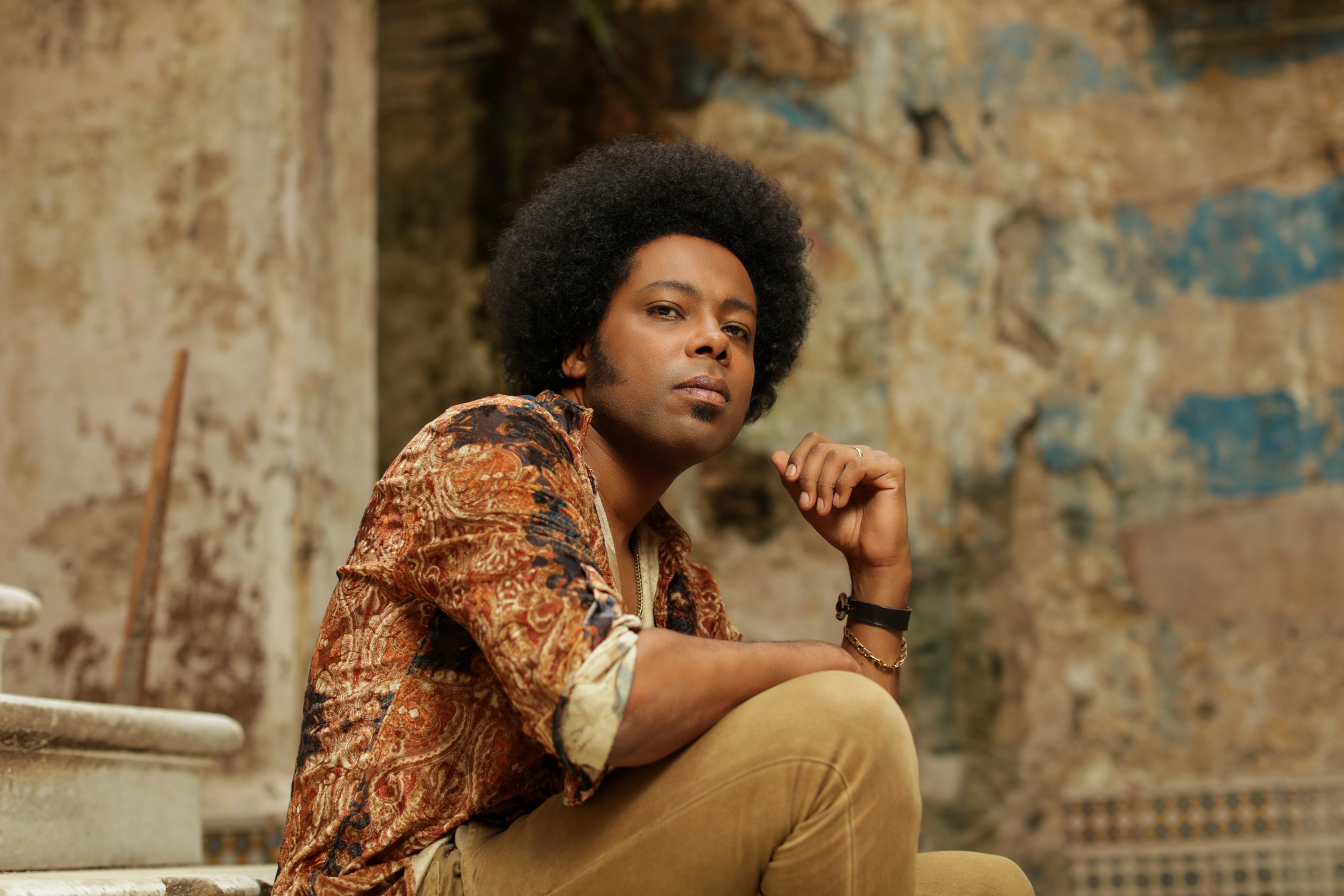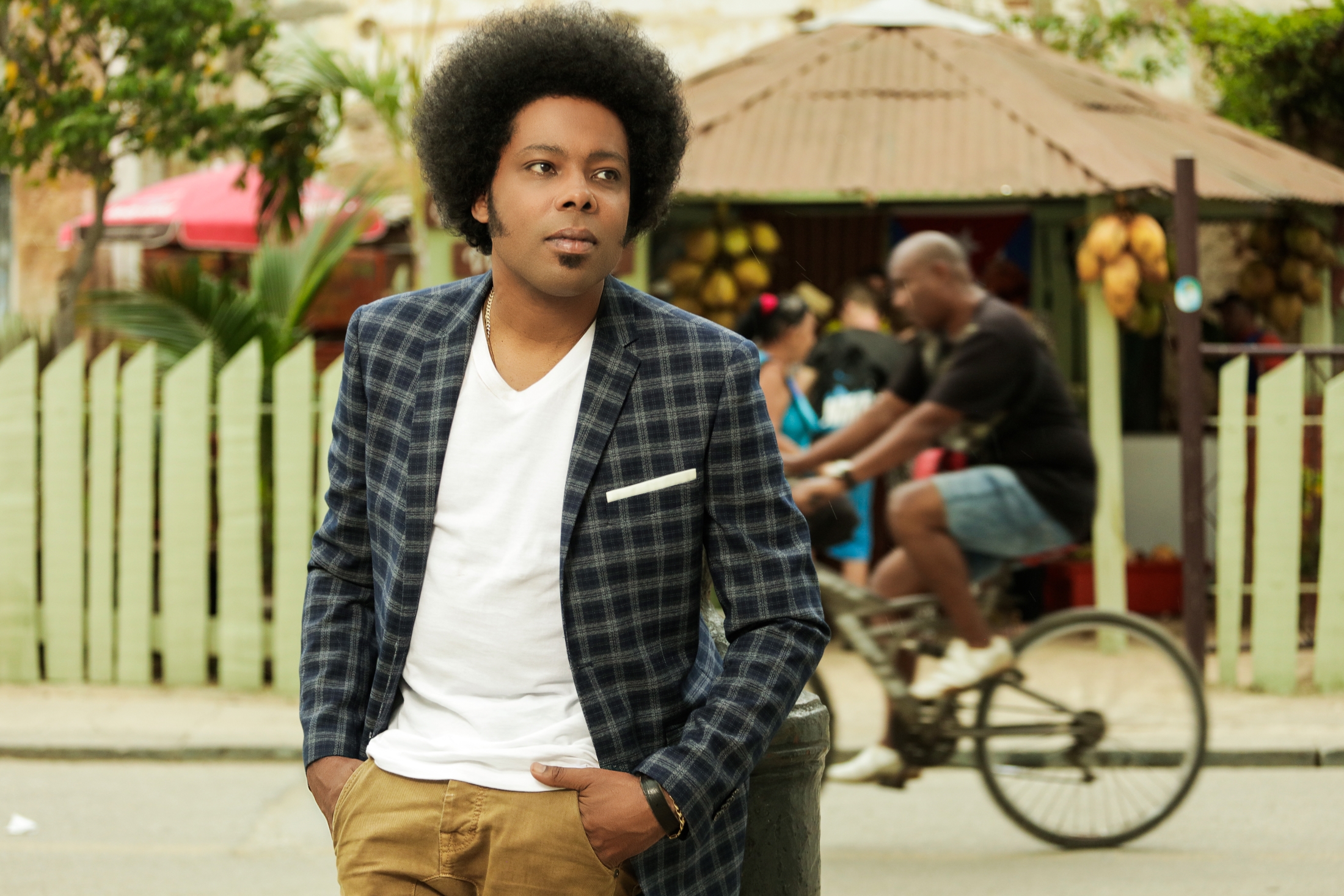Alex Cuba is sitting in the lounge of Vancouver’s Fairmont Pacific Rim, smiling and shaking his head in disbelief. He’s reminiscing about the time when Pablo Milanés, the legendary Cuban singer-songwriter, called him on FaceTime.
Milanés had just finished recording his part on “Hoy Como Ayer,” an acoustic song on Cuba’s new album, Sublime. The two didn’t meet: Milanés recorded his vocals in Madrid while Cuba was on tour in Mexico. But Milanés phoned to chat and say thanks—a moment Cuba found totally surreal.
Then, Milanés said something that Cuba avows he’ll forever treasure. “He said, ‘I’m really proud your generation is coming forward and artists like you are inviting me to perform with them,’” Cuba recites, leaning in. “’And I want to tell you why: because this art, this type of music, is in danger. The art of the singer-songwriter, a man and his guitar—or a woman and her guitar—is declining. Especially in Latin music.’”
The arrangements on “Hoy Como Ayer”—two voices, strums of guitar—were done intentionally so, to make a quiet statement against the louder, dance-infused Latin music currently enjoying mainstream popularity. “I wanted to prove a point,” Cuba nods. “I wanted to deliver something entirely honest and simple.”
Born Alexis Puentes in Artemisa, a small city in Cuba, the younger musician grew up listening to Milanés. He listened to his songs, which helped pioneer the Cuban nueva trova movement, every single day. Cuba’s childhood home was filled with music, especially since his father, Valentin, was a guitarist and teacher at the neighbourhood Casa de Cultura across the street.
“My father gave me a lot of attention from the music-side,” Cuba says. “And I think he gave me a lot of attention because he saw that I was completely interested. I was never the kid you needed to ask to go practice. My father would play something for me and then he would leave, and I would grab his guitar and try to play what he was playing.”
Cuba eventually joined his father’s band and, in 1995, they performed in Vancouver. At the soundcheck, he met an anthropology student named Sarah Goodacre, who was volunteering at the venue. They married a year later and have been living in Smithers, B.C. since 2003, with their three children. Cuba creates out of his home and has won multiple Juno and Latin Grammy Awards, as well as a handful of Grammy nominations, for his solo work.
Sublime is his seventh album. Along with songs about love’s various incarnations, it contains a larger commentary on social issues than he’s included before—“Ciudad Hembra (La Habana)”, is about acknowledging and embracing each other’s differences; “Las Mujeres” is an homage to women—interlaced with bright notes of jazz, bossa, and trova. Cuba’s signature uplifting outlook is a presence throughout.
“When I’m not entirely happy or I’m upset about something or feeling depressed—you know, it happens to all of us—that’s the moment where I love music the least,” he contemplates. “But somehow, when I’m happy, songs come rushing from me. And that’s what I put in there: that energy, that light, that power.”
The fight for life’s goodness was something instilled in him from the start. “I realized a lot of things about my personality this year,” he adds. “One of them—I’ll tell you a little secret. I was born underweight. I was four-and-a-half pounds. I was left inside an incubator, on my own, for 12 days without having my mother around. And that, I think, has a lot to do with the way I see the world these days.”
Smithers, framed by jagged mountains and wildlife-thick forests, makes an immense impact on Cuba. The untamed surroundings contribute an airiness to his songs, while the remoteness allows him to retreat inward. “We are used to the idea that if you are a musician, you need to be in a big [city] centre,” Cuba says. “I find—this is my opinion—if you are a creator, if you have that force in you, to be isolated will benefit you because you listen to yourself. In big centres, we are all listening to each other.”
His aim to “not corner his music” has given him the chance to carve out a unique legacy. One defined by great sensibilities and songwriting, yes, but one that’s also weaved him into Canada’s cultural fabric—a legacy that has made him a point of reference for Latin music in the country. “I play for a lot of people that never heard Latin music before,” he says, insisting that perhaps the most incredible thing is learning his work often gets quickly shared with Latin people visiting Canada.
He smiles again. “That means I’ve grown roots.”
Sublime by Alex Cuba is released on September 20.
Read more stories on music and the arts.










